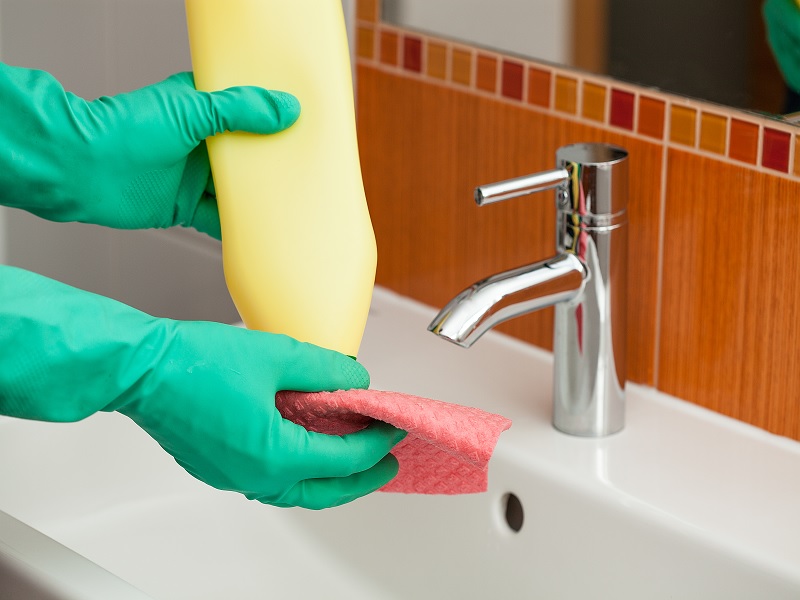
In partnership with the Washington State Department of Health, we’ve developed a draft Phthalates Action Plan to address the toxic effects phthalates have on humans and wildlife across Washington.
We drafted the recommendations in the Action Plan with guidance from our advisory committee. We'll use this action plan to convene workgroups, undertake research, and conduct outreach and education. State agencies, local governments, industry, nonprofits, and other community partners can implement our recommendations.
Are you interested to learn more about our action plan, including how to provide input? We want to hear your thoughts! In this post, read about our Phthalates Action Plan, upcoming webinars and ways to provide feedback on our recommendations.
But first… What are phthalates?
Phthalates are a class of human-made chemicals used in many consumer products. Manufacturers commonly use phthalates to make plastics more flexible and durable. These chemicals are also used as solvents in fragrances that are added to consumer products because they help scents last longer.
Many phthalates are toxic to humans and wildlife. Phthalates can disrupt hormone regulation, harm reproductive health, and impair fetal development. These chemicals have similar effects on wildlife, especially marine and freshwater animals.
Unfortunately, people are exposed to phthalates in numerous ways throughout the day. Phthalates can be found:
- In personal care products you might use, including lotions and perfumes.
- On the vinyl floors you walk across to make breakfast.
- In the carryout containers you use to grab a take-out lunch (not to mention conveyor belts and rubber gloves that come into contact with your food).
- In household products you use throughout the day, from your shower curtain to your kid’s toys.
- Within plastic medical devices you might rely on at a hospital, including IV tubing and catheters.
- In building materials throughout your house and work, including plastic pipes and roofing.
Phthalates are continually released into the environment due to their use in a variety of human-made products. We ingest phthalates through eating food, inhaling indoor air, and accidentally ingesting dust. Our bodies quickly process these chemicals and excrete them in our waste. Close to 90% of Americans have measurable levels of phthalates in their urine.
The Phthalates Action Plan
Given the widespread nature of phthalates and their negative health and environmental impacts, it’s critical that we reduce phthalate release and exposure to humans and the environment. The recommendations in our draft Phthalates Action Plan can help reduce the negative health and environmental impacts of phthalates across the state.
Because certain groups of people are more highly exposed, disproportionately exposed or more susceptible to the health harms of phthalates, environmental justice and equity is a critical consideration in our recommendations.
To address the many avenues for phthalate exposure, we’ve divided our Phthalates Action Plan into three key categories:
1) Products and materials
2) Solid waste media
3) Environmental media
Our recommendations address phthalates in each of these categories. You can read these recommendations in the draft Phthalates Action Plan, which we published on May 1, 2023.
We need your feedback!
We put together a strong plan to address phthalates in Washington state and need your input to ensure our plan addresses community needs. You’re invited to review and comment on the draft Phthalates Action Plan (using our online comment form) from May 1, 2023, to June 14, 2023, at 11:59 p.m. PDT.
- Do you know of other partners (government or non-governmental) that we can work with to implement these recommendations?
- How can we improve these recommendations to positively impact your community?
- Is there anything else we should consider for the draft recommendations?
We’ll respond to every comment we receive and will consider community feedback as we develop the final Phthalates Action Plan.
Opportunities to learn more: upcoming webinars
Have questions or want to learn more about the action plan?
Join one of our virtual public workshops on the Phthalates Action Plan. During these workshops, we’ll provide a brief background on phthalates, explain our draft recommendations, and answer any questions you may have. These workshops will take place on:
Please note that we won’t collect comments or feedback on the action plan during these workshops. We invite you to submit your suggestions and comments using our online comment form.

